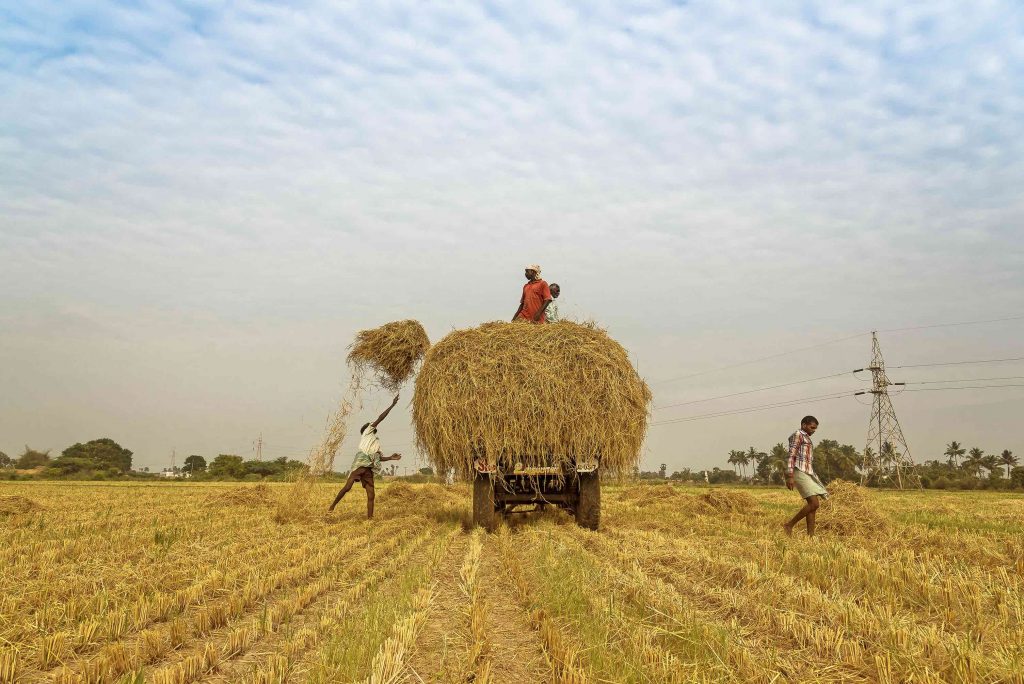
Farming is a Pillar of India
Private Companies in Indian Agriculture play a vital role in India’s economy and society. For centuries, hardworking farmers have provided food for the nation. The Green Revolution brought new farming methods and technologies, dramatically increasing crop production. However, challenges remain, and there’s always room to improve and innovate. That’s where private companies are stepping in, bringing a fresh wave of solutions.
Private Companies in Indian Agriculture Bring Fresh Ideas & Solutions
Private companies partner with farmers, introducing new ideas, tools, and strategies to boost production and improve the agricultural sector. Let’s explore some of the critical areas where they make a difference:
- Overcoming Water Challenges: Many regions in India experience unpredictable rainfall and drought. Private companies are developing drought-resistant seeds that allow crops to thrive even with less water, ensuring farmers don’t lose their harvest in dry seasons.
- The Power of Improved Seeds: Historically, farmers relied on traditional seeds passed down through generations. Private companies research and develop improved seed varieties that offer higher yields, are resistant to pests and diseases, and produce more nutritious food.
- Smart Farming for Better Decisions: Smart farming uses data, sensors, and advanced equipment to improve farm efficiency. Companies offer solutions that help farmers monitor soil conditions, track weather patterns, and optimize irrigation systems. This leads to greater crop yields and reduced waste.
- Creating Farmer-Friendly Markets: Private companies help farmers connect with larger markets and fetch better prices for their produce. This ensures hardworking farmers earn a fair income and reduces the loss of perishable goods, benefiting all involved.
Private Companies in Indian Agriculture Making a Big Difference
Here are some examples of companies that are leading the transformation of Indian agriculture:
- Godrej Agrovet Limited: Focusing on research and development, they create innovative products for animal feed, crop protection, and value-added food processing, aiding the entire agricultural chain.
- Advanta Seeds emphasizes providing high-quality seeds, particularly to smallholder farmers. This focus on accessible technology empowers even tiny farms to increase their production and food security.
- Rallis India Limited (TATA Group): This company acts as a one-stop shop, providing farmers with essential inputs like seeds, fertilizers, pesticides, and plant growth nutrients, making it easier for farmers to source their needs.
- Kaveri Seeds Company Limited specializes in creating hybrid seeds for crops like cotton, corn, and rice, which directly boosts harvests and contributes to greater food security for the nation.
- National Agro-Industry: This company equips farmers with modern tools, like tractors and advanced harvesting equipment. Mechanization reduces manual labor and speeds up farming operations.
Exciting Ideas for the Future
Private companies continue to explore and invest in cutting-edge solutions for the future of agriculture:
- Vertical Farming: Growing crops in vertically stacked layers within controlled environments allows for year-round cultivation, even in urban areas where space is limited.
- Biotechnology: Through careful research, scientists in private companies are developing plant varieties that can withstand harsh weather, resist diseases, and require fewer pesticides, safeguarding the future of farming.
- Online Marketplaces: Digital platforms that connect farmers directly with consumers and businesses promise fair pricing and reduced food waste, empowering farmers with more control.
Challenges Private Companies Face
While private companies offer immense potential, they also face various hurdles in India’s complex agricultural landscape:
- Regulations present a challenge: navigating complex rules and bureaucratic procedures can sometimes slow down innovation and the implementation of new projects.
- Small Landholdings: Much of Indian agriculture is carried out by smallholder farmers. This can limit the reach and effectiveness of specific technologies that require large tracts of land.
- Infrastructure: Limited access to reliable electricity, inadequate storage facilities, and poor road connectivity in rural areas can hinder operations and increase costs for companies and farmers.
The Voices of Farmers
The true impact of private companies is best illustrated by the farmers they help:
- “The new seeds provided by the company have been a lifesaver. Last year during the drought, my rice crop survived when many others failed.” – Rajeev, a farmer in Uttar Pradesh.
- “Now, the company helps me sell my mangoes directly to a big supermarket chain. I finally feel I’m getting a fair price for my hard work.”—Sunita, a farmer in Maharashtra.
Beyond Crops: Livestock and Aquaculture
Private sector involvement in agriculture continues beyond traditional crops. They play a crucial role in improving allied areas as well:
- Livestock Development: Companies are revolutionizing livestock rearing by providing high-quality animal feed, improving breeding practices, and offering advanced veterinary care services. This leads to healthier animals and more productive dairy and meat industries, benefiting farmers and consumers.
- Aquaculture Advancements: India has vast potential for fish and shrimp farming (aquaculture). Companies offer expertise in sustainable practices, disease-resistant fish varieties, and efficient pond management systems, which boosts aquaculture as a source of food and income, especially for coastal communities.
Focus on Sustainability: Farming for the Future
The private sector must approach agriculture with a long-term focus on environmental responsibility and resource preservation:
- Soil Health: Some companies educate farmers on preserving and enriching soil fertility through techniques like crop rotation and organic fertilizers. Healthy soil is the foundation of solid yields for generations to come.
- Water Wise Practices: With water scarcity rising, promoting water-efficient methods is critical. Companies introduce drip irrigation systems and educate farmers on optimizing their water usage.
- Reducing Pesticide Reliance: Companies can support farmers in integrated pest management by offering bio-pesticides and natural solutions that protect crops while minimizing harmful chemicals. This safeguards both farmworkers and the environment.
Government Support for a Vibrant Agricultural Ecosystem
The Indian government recognizes the importance of the private sector in modern agriculture. They’re taking steps to create a supportive environment:
- Relaxing Regulations: Government initiatives aim to streamline regulations and simplify processes for private companies to invest in agriculture.
- Promoting Partnerships: Public-private partnerships are encouraged to bridge gaps in research, infrastructure development, and sharing of best practices.
- Investing in Rural Infrastructure: Improving roads and electricity supply and establishing cold storage facilities in rural areas removes logistical hurdles and makes it easier for companies to reach and serve farmers.
Working Together for a Brighter Future
A collaborative effort between private companies, farmers, and the government is essential for building a resilient and thriving agricultural sector. Here’s what this partnership can achieve:
- Food Security for All: Increased production, reduced food wastage, and improved incomes for farmers ensure India has reliable and affordable food for its growing population.
- Rural Prosperity: Thriving agriculture directly benefits rural communities, raises living standards and creates employment opportunities beyond farming.
- Climate Resilience: Through sustainable practices and climate-smart agriculture, the sector can adapt to the challenges of climate change, maintaining productivity even in adverse conditions.
Every individual has a role to play in supporting responsible businesses and fostering a positive future for agriculture in India:
- Consumers Supporting Innovation: When purchasing groceries and other agricultural products, consider the companies behind them. Choose to support those who are committed to sustainability and fair farmer treatment.
- Young Innovators Leading the Way: Schools and universities can encourage students to think critically about agricultural challenges and develop solutions. Competitions and hackathons can inspire the next generation of agricultural innovators.
- Informed Citizenry: Stay Up-to-date on agricultural policies and the work being done by the government and private sectors. Your voice and support for initiatives prioritizing farmers’ well-being and sustainable growth matter!
The Future of Farming is Bright!
Private companies are transforming Indian agriculture. With new ideas, advanced technology, strong collaborations, and a focus on sustainability, the future of Indian agriculture looks incredibly promising.



